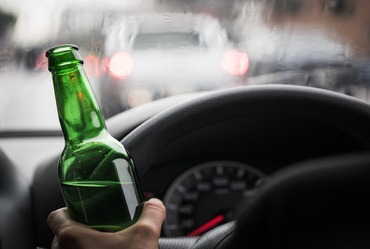Search

Drinking and driving is a serious offense in the United States, with severe legal consequences that can impact a person’s personal and professional life. Understanding the penalties, liability, and legal rights associated with DUI (Driving Under the Influence) or DWI (Driving While Intoxicated) can help individuals make informed decisions and navigate legal situations effectively.
The legal penalties for drinking and driving vary by state but generally include:
1. Fines and Fees: DUI convictions often come with significant fines, which can range from a few hundred to several thousand dollars, depending on the state and severity of the offense.
2. License Suspension or Revocation: A DUI conviction typically results in a driver’s license suspension, ranging from several months to years. Repeat offenders may face permanent revocation.
3. Jail Time: First-time offenders may face short jail sentences, while repeat offenders or those involved in accidents causing injuries or fatalities can receive lengthy prison sentences.
4. Ignition Interlock Devices (IID): Many states require DUI offenders to install an IID in their vehicles, which prevents the car from starting if alcohol is detected in the driver’s breath.
5. Probation: DUI convictions often come with probation, requiring individuals to comply with court-ordered conditions such as attending DUI education programs or undergoing substance abuse treatment.
6. Community Service: Courts may impose community service hours as an alternative or in addition to other penalties.
In addition to criminal penalties, those who drive under the influence may also face civil liability, including:
1. Personal Injury and Property Damage: If a DUI-related accident causes injury or property damage, the impaired driver can be held financially responsible for medical expenses, vehicle repairs, and other costs.
2. Wrongful Death Lawsuits: If a DUI results in a fatality, the driver may be sued for wrongful death by the victim’s family, leading to substantial financial compensation.
3. Dram Shop Liability: Some states hold bars, restaurants, or social hosts accountable if they serve alcohol to someone who later causes a DUI accident.
4. Increased Insurance Costs: A DUI conviction can lead to skyrocketing insurance premiums, and in some cases, insurers may cancel coverage altogether.
While DUI laws are strict, individuals accused of drinking and driving still have legal rights, including:
1. Right to Legal Counsel: If arrested for a DUI, you have the right to an attorney. A skilled DUI lawyer can challenge evidence, negotiate plea deals, or represent you in court.
2. Right to Remain Silent: You are not required to answer self-incriminating questions from law enforcement officers beyond providing identification and basic information.
3. Right to Refuse Field Sobriety Tests: In most states, you can refuse field sobriety tests without automatic penalties. However, refusal of a chemical test (breath, blood, or urine) may result in immediate license suspension under implied consent laws.
4. Challenging Breathalyzer and Blood Test Results: Breathalyzer and blood tests must be administered correctly and lawfully. If there are errors or violations in testing procedures, results may be challenged in court.
5. Right to a Fair Trial: If you contest the DUI charge, you are entitled to a fair trial, during which evidence and witness testimony will be examined.
Drinking and driving carries severe consequences that affect every aspect of a person’s life, from criminal records to financial burdens. Understanding the legal implications and knowing your rights can help individuals make better choices and seek proper legal representation when necessary. To avoid these risks, the safest option is to never drink and drive and to utilize alternatives such as ride-sharing services, designated drivers, or public transportation.